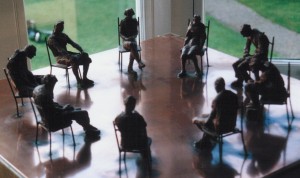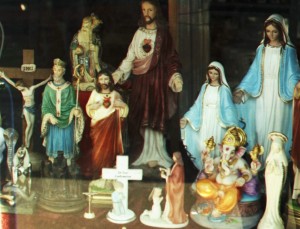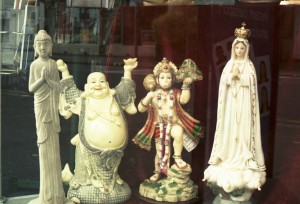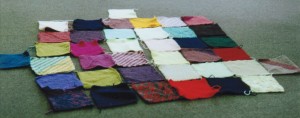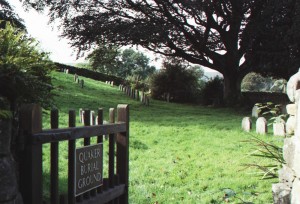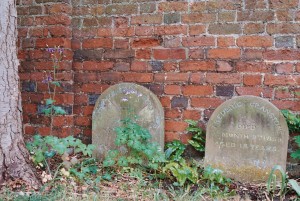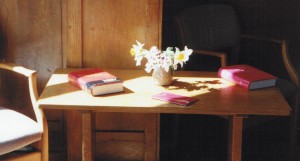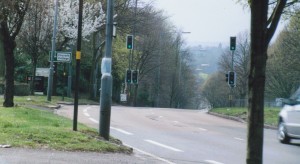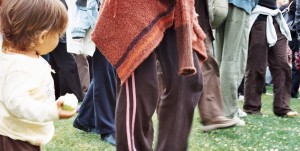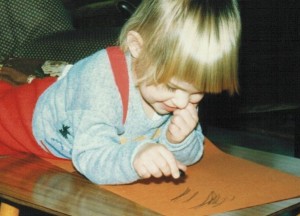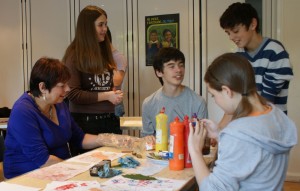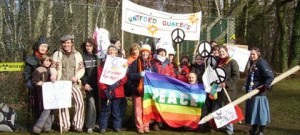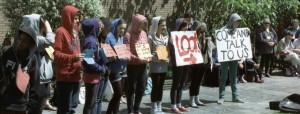At twenty-five to I excuse myself early from the special interest group and make my way to the large meeting room. Leaving early is unfortunate, especially when I’ve just asked the speaker a difficult question, but I’m to be doorkeeper and time keeping is important.
Initially there is little to do except chat to the other doorkeeper and reassure the rota organiser by being present.
By ten to people are arriving, taking their seats for the session and acquainting themselves with their neighbours – where are you from; oh, do you know …; I went there once when I was staying at …;
At the door we are greeting Friends, answering questions, advising on where to sit to benefit from the loop system. Someone asks if he can take his coffee into the meeting room and I advise against it, so he stays just outside to drink it, and talks to me. He is an attender who has come from Alnwick, Northumberland, for Yearly Meeting, he’s never been so far south before. The hospitality he has received from Friends in London, combined with the experience of Yearly Meeting, has convinced him to apply for membership. I feel privileged to have heard his story. He finishes his coffee and slips into the meeting room just ahead of the clerks and elders. As the elders take their seats, we close the doors.
I stand outside, trying to hold the silence within the Meeting, while still being aware of the needs of those outside. Whispered explanations to late comers as to why they can’t go in, though yes, they may peep through the window to see if their friend is there and where the seats are. Suggesting that Friends sit on the benches in the corridor and wait in silent worship until they can be admitted, or that they might like to go upstairs where there will be more seats. Most are happy to accept the discipline. I’m not really aware of the time, but I guess it’s about 20 minutes before the elders stand, the clerks come to the table, and my fellow doorkeeper opens the doors to admit people. I alert the blind friend who has waited patiently on the bench that we are now going in and accompany him to a seat, then climb the step to the doorkeeper’s seat, where I can see the corridor outside through the special window, whilst being in the Meeting. During the session I need to maintain an awareness of those who may wish to be admitted, letting them in at appropriate times; and of those who may need to leave, perhaps urgently, enabling this, too, to happen with minimal disturbance to the business of the Meeting.
This is a quiet, inconspicuous ministry, but one that needs a lot of ministers (Friends House has eight doors to the large meeting room). It has often occurred to me that it is a metaphor for a ministry we can offer to the wider world, being at the door between the ‘real’ world of everyday practicalities and a ‘place’ where one can be aware of spiritual realities. It is particularly a role Friends may have in the Council of Churches in Britain and Ireland, and in Inter Faith dialogue, to be at ‘the door’, aware of the needs of those on both sides of ‘the door’ and facilitating movement in both directions.
This article was previously published in ‘The Friend’.

